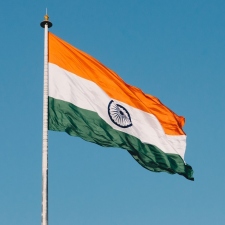A controversial set of new regulations that have been proposed which would regulate video games with the same strictness as iGaming, or digital gambling, has seen Indian game makers pen an open letter to the government.
The Ministry of Electronics and Information Technology (MeitY) in India published a set of recommendations and a draft bill. Named “Draft amendments to the IT (Intermediary Guidelines and Digital Media Ethics Code) Rules, 2021 in relation to online gaming.”
One passage of the recommendations indicates any online games would need to be in adherence to existing laws, including those covering iGaming.
“The draft amendments envisage that an online gaming intermediary shall observe the due diligence required under the rules while discharging its duties, including reasonable efforts to cause its users not to host, display, upload, publish, transmit or share an online game not in conformity with Indian law, including any law on gambling or betting.”
For many game makers and observers, this move has implied that video games of all kinds would have to adhere to laws on gambling even if their games contain no real money stakes or other elements such as IAP that involve the use of money.
In response a consortium of more than 40 Indian game makers published an open letter. It calls for a review of the proposed legislation, and an understanding of the importance of India’s gaming industry both culturally and economically. As well as bringing in game makers from across all platforms to consult on current and future legislation. With one notable passage reading…
“India must harmonise with the larger global discourse on digital and internet technologies. Building upon this framework requires a mix of factors - comprehensive policymaking, ease of doing business and enhanced standards for users.”
“At the outset, we wish to highlight that the proposed rules attempt to regulate ‘Online Games’ as a homogenous subject and there is no cognizance and recognition of “video games”. It is pertinent to realise that ‘Video Games’ are distinct from ‘Online Games played for stakes’ and must be recognized and treated distinctly and appropriately.“
Statement from game makers
We reached out to co-founder of Outlier Games, Harish Chengaiah to ask more about specific perspectives from the ground level. He noted that…
“The draft policy is meant to regulate iGaming but it comes with a certain set of broad definitions that pulls video games into this draft bill and regulates them all with blanket measures, which are as unfair as it gets. Yes, there are concerns surrounding children’s access to in-game purchases and them getting exposed to violent content and online harm in the multiplayer environment but that doesn’t mean they have to club video games with gambling. We don’t see movie theatres and casino halls getting slapped with the same set of taxational, operational and legal compliance burdens.”
Harish also noted that of 44 companies in the consortium which penned the letter, at least 20 were mobile gaming studios. He notes that the consortium’s letter seeks to address government concerns and also emphasises the importance of communication with them “In our representation, we have shared a cover letter and a detailed 27-page report that goes over our recommendations that not just address the government’s concerns on video games but also provide a forward-looking policy framework that can be used to form an equitable regulatory environment for the video games industry in India.”
As for what the game makers want at this juncture, he adds “Our ask has been simple, call us in for a stakeholder meeting and hear us out. It’s sad and ironic that the video games industry in India has not been given a seat at the table when the country’s gaming laws are being formulated. We hope we get a call.”
How would this work?
The Leaflet, a publication which covers news about law and legislation in India, linked to previously, notes a particular passage of concern…
“The other major concern is with regard to how the Rule 6A of the draft is worded. The rule provides that, ‘If the Ministry is satisfied in respect of any game made available on the Internet and accessible by a user through a computer resource without making any deposit, that such game may create a risk of harm to the sovereignty and integrity of India or security of the State or friendly relations with foreign States or public order, on account of causing addiction or other harm among children, it may, by a notification published in the Official Gazette, for reasons to be recorded in writing, declare that such game shall be treated as an online game for the purposes of these rules’.”
“In simpler words, the government has the authority to categorise any game as an ‘online game’ under rule 6A, even if it can be accessed without paying any money, if the government believes that the game might encourage addiction or cause ‘harm among children’, or if it is necessary for national security, public order or foreign relations. However, under the draft, nowhere has the phrase ‘harm among children’ been defined or explained.”
Essentially, although the term ‘online game’ is defined as including real money gambling, in-effect the proposed legislation would allow any game to be classified as such regardless of fitting the specific definition. The phrase “harm amongst children” is also notable when it comes to subjective legal definitions that can in effect be applied as legislators see fit.
What would the effects be?
As other outlets have noted, the effect of the draft bill would likely be anything but positive for the Indian gaming industry. Aside from the negative connotations of being associated with gambling that may see potential new employees shy away from getting into the gaming industry, it’s likely that any regulatory crackdown on gambling would have a knock-on effect on virtually any game.
With the Indian gaming industry remaining in a relatively nascent but still growing stage, the restrictions imposed by the draft bill would severely hamper the growth of existing game makers and stifle the founding of new ones. We’ve seen a similar effect taking place in China, due to their restrictive legislation on game licensing.
Simply put, nothing good would likely come of the legislation being introduced.
Video game battleground
It would not be the first time that the Indian government has taken a strong legislative stance on video games. With PUBG and BGMI (Battlegrounds Mobile India) notably being banned from download in the country. With the government claiming privacy issues, but many observers noting that it came hot off the heels of tensions with China, where the makers of the games are based.
Ironically, the biggest thing holding back video game development in many emerging markets such as China and India which have displayed massive potential, is outdated thinking on the technology. With both India and China seeing only the potential negative connotations of gaming and their social effects. This has led to ongoing crackdowns on gaming, even as these industries contribute hugely to the local economy.
One notable area is Türkiye, which has seen their gaming industry not only weather a recession and pandemic, but in-fact grow whereas other more traditional industries have receded. In contrast, China’s mobile game industry saw its first forecasts of decline, a development that many have actively blamed upon restrictive legislation and freezes on the issuance of new licences for games in the country.
Moving forward
While regulatory scrutiny of video games has increased in Europe and America in recent years, the nascent stages of the video game industry had room to grow and innovate for the most part. Whatever the intent of the legislation in India, it risks causing serious harm to the growth of a still-developing industry.
Game makers airing their grievances that they were not consulted, hopefully will encourage the Indian government and The Ministry of Electronics and Information Technology to reconsider the recommendations, pending consultation with industry professionals.
In contrast, other game companies will need to seriously start considering legislative compliance. So said Paul Gardner of Wiggin when he spoke at PGC London 2023 about the current status of the video game industry and how regulations have been changing in the UK.






















